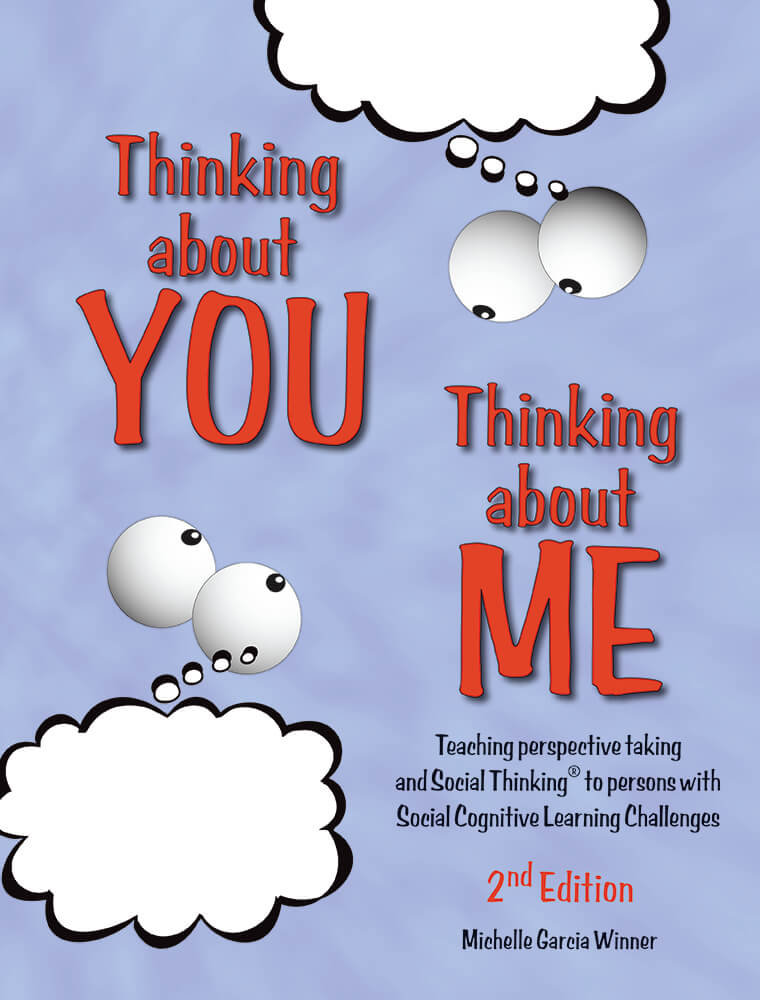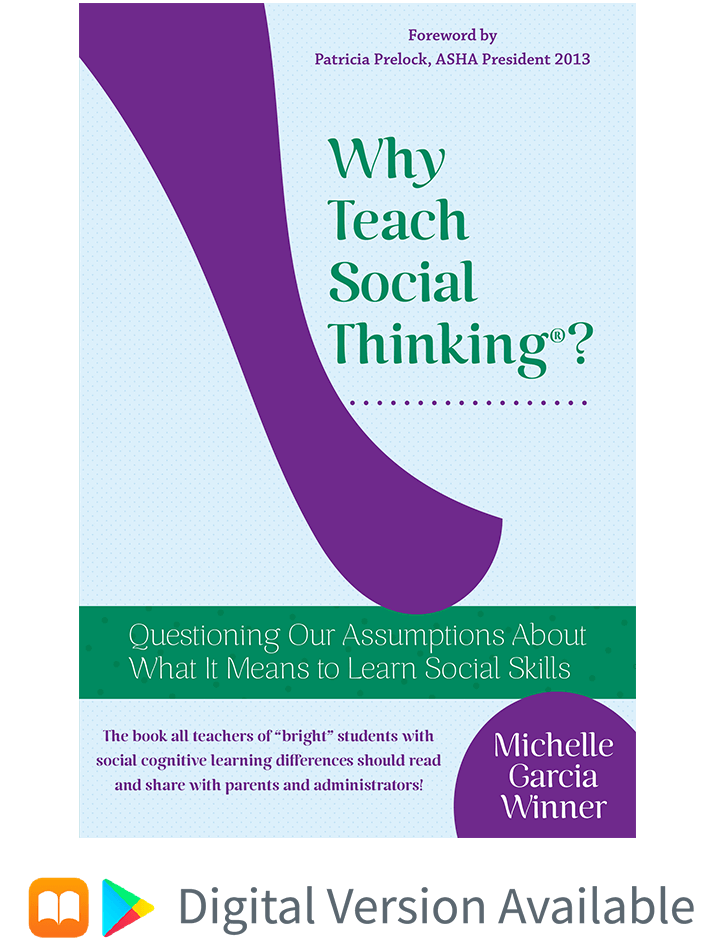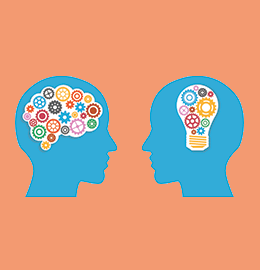Updated: April, 2015
© 2021 Think Social Publishing, Inc.
The social mind is an information-processing machine and “data interpretation” is a huge part of that processing. Unlike facts and figures that may “compute” in neat and logical ways, deciphering and making sense of the clues and cues in any social environment is a many-layered, complex, and highly flexible thinking process. Often that thinking requires us to make assumptions and guesses. Unfortunately, when it comes to teaching social information to people with solid to strong language and academic learning skills, some of the assumptions we make may lead us astray.
The good news is that awareness is the first step in keeping our assumptions realistic and relevant to those we serve. Whether we are working with an individual as a parent, an educator, or a professional, to be effective we need to start by avoiding assumptions about what our students actually know when it comes to social information!
So many other assumptions we make can throw off our ability to provide timely and relevant information to help people learn to successfully interact and share space together. We’ve put together the top five assumptions we repeatedly notice among parents and professionals about individuals who have strong language skills and yet struggle with social issues. See if any of them hold a space in your social brain!
Assumption 1: Smart people should have good social skills or the ability to figure social situations out on their own. They need less help.
Reality: Our social intelligence and our academic intelligence minimally overlap. People who have solid to strong/gifted language and learning skills can have compelling social learning and social skills challenges.
Students with solid to gifted language skills are likely to learn more sophisticated concepts than students with limited abilities to process and express themselves with language. However, it is a mistake to think that smart people with solid to strong language skills all have similar social learning abilities. We have worked with many children and adults who have tremendous “science smarts” while simultaneously being tremendously limited in their “social smarts.” People with strong IQs still need basic, stair-stepped teaching of even the most basic of social concepts.
In fact, we have found that some of our “brighter” clients, based on their academic testing, may we weaker socially than other clients who scored worse on these same academic tests. Therefore, we do not advocate placing students into treatment groups based on academic or IQ testing as it is not sensitive to their social intelligence. Instead, we encourage parents and professionals to group students or design individualized treatments based on a student’s age and social functioning level. We created the Social Thinking- Social Communication Profile (ST-SCP) to help adults understand the different levels of the social mind and how to approach treatment at each level. We use the ST-SCP for understanding the social learning needs of individuals age nine and older and continuing through adulthood.
Assumption 2: Professionals are trained to teach social skills
Reality: Not a single care-taking profession (psychology, counseling, psychiatry, educators, behaviorists, SLPs, social workers, OTs, etc.) provides training in the complex understanding of the social mind and teaching related social skills. Social Thinking helps fill this void by creating and offering information and materials based on the evidence, sharing expertise gleaned from clinical experience with individuals of all ages, and working closely with clients and families to refine materials so they are practical and accessible for use. Parents especially should never assume that people with professional degrees have received deep and explicit instruction on what it means to teach social skills.
It is a common occurrence that many professionals are working together when addressing the social treatment needs of any single individual. For this reason we encourage professionals to use an interdisciplinary approach when working with our clients. When used by all members of the team, Social Thinking becomes the learning glue that can bind different approaches together to benefit the client.
Assumption 3: "He could change his behavior if he really cared/wanted to. Behavior problems occur because people do not care about others and intentionally choose not to comply. You fix behavior problems with a behavior plan."
Reality: Our social mind provides social information to help or hinder our ability to “adapt effectively” which loosely translates as the ability to scan a situation, figure out what’s going on and any hidden social rules that may apply, and maintain appropriate behavior in it. If a student is not adapting effectively in a situation we tend to label the student a “behavior problem.” The bigger assumption here is that we presume the person “knows better” and can change his or her behavior without help or with minimal help.
With Social Thinking, we challenge the assumption that the student has intentionally created a problem. Instead, we explore how the student is interpreting and responding to the situation to determine if the challenging behavior is the result of weaknesses in a student’s social learning system. If so, concepts and strategies are taught to help the student become more aware of the situation, the student’s social expectations and social interpretations of self and others, and the related expected behaviors (social skills) for the situation.
Social Thinking pairs well with programs developed by others who are trying to get to the heart of challenging behavior, such as Dr. Ross Greene. We recognize that many different methods can be woven together effectively to promote a student’s ability to feel, and be, more successful in interacting with others across the home and school day.
Assumption 4: People learn social skills through modeling, all typically developing children don’t need to be taught social information, and those with poor social skills just need better behavioral models!
Reality: If students simply learned social skills through modeling then we would have far fewer people with social skill challenges! Our Social Thinking and related skills are an outgrowth of our social mind’s ability to socially attend, interpret and respond in the moment of interaction. Being surrounded by people who use good social skills will not, in itself, be enough to teach a person with weak social skills to behave if that person’s mind is not able to efficiently attend, interpret, and respond to this type of social information. This is the case with many of our students with social learning challenges. This foundation of basic social “know-how” is missing.
Social Thinking concepts and strategies help teams adopt a different mindset toward their students’ challenges and put to rest the assumption that students simply need a normal peer model to demonstrate what normal social skills look like. Instead adults learn to explicitly teach students how to interpret the “hidden social rules”, develop improved systems for being self-aware of their behaviors, while also learning strategies to figure out how to adapt their behavior effectively across a range of situations and people. While Social Thinking’s concepts and strategies were originally developed for use with special needs populations, the manner in which our materials explicitly teach social problem solving and conflict resolution skills has resulted in our lessons being embraced and taught in typical classrooms, in boys and girls clubs, and even with adjudicated youth!
Assumption 5: All treatment must be based on the evidence and use proven treatment techniques.
Reality: All treatment techniques should be based on evidence that’s the result of sound research studies. The issue, however, is that to date, there exist no comprehensive research studies that study how to teach sophisticated social skills. Within the field of behaviorism a large number of studies demonstrate how to teach singular social behaviors to young children. However, the number of research studies adequately measuring how students adapt effectively in social situations in real time quickly drops off as students’ social behaviors become more and more complex with age.
Each of our social skills (our behaviors) launch from the starting pad of our social processing (our thinking). There are a myriad of complex synergistic, dynamic, cognitive and social self-regulation factors that are involved in our ability to produce sophisticated social skills. The reason our social skills have never been effectively measured in something like an IQ test is because of these complexities and interrelationships. A huge number of variables are at play during any social interaction or in discussing any social skill. The best we can do is continue to learn from research related to psychology, sociology, linguistics, anthropology, speech and language, autism and then make an informed decision about how to proceed with our clients based on how they process and respond to information in real time. Furthermore, no clinical research study to date has come close to looking at the range of different processes involved in teaching social skills based on the different learning abilities of our students!
One idea is to shift our perspective toward this issue, and think about not just “evidence based” but also “based on the evidence.” Educators works with students every day, clinicians work with clients every day, and within those environments exists a lot of “evidence” about how a treatment program is working with a student or group. The lack of research studies does not mean our community is absent any evidence about effective ways to teach Social Thinking and related social skills. As researchers and clinicians pursue improved practices based on the evidence, we all may need to be satisfied that they may not be heavily “evidence based” any time in the near future. But they can be “based on the evidence” by observing and tracking how our students in clinics and classrooms across the country and around the world learn and develop better social cognitive processes through the application of Social Thinking concepts and strategies.














